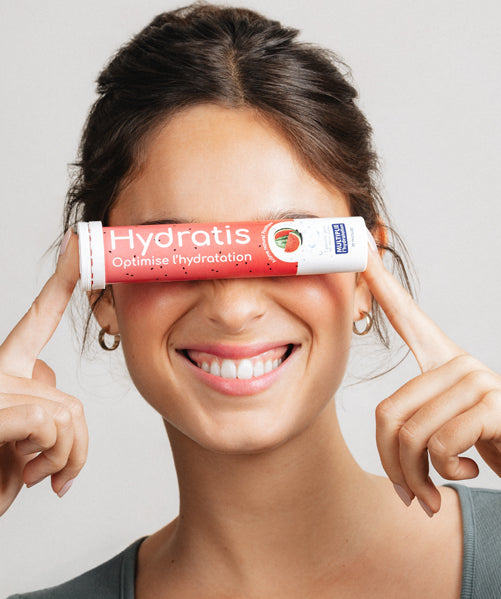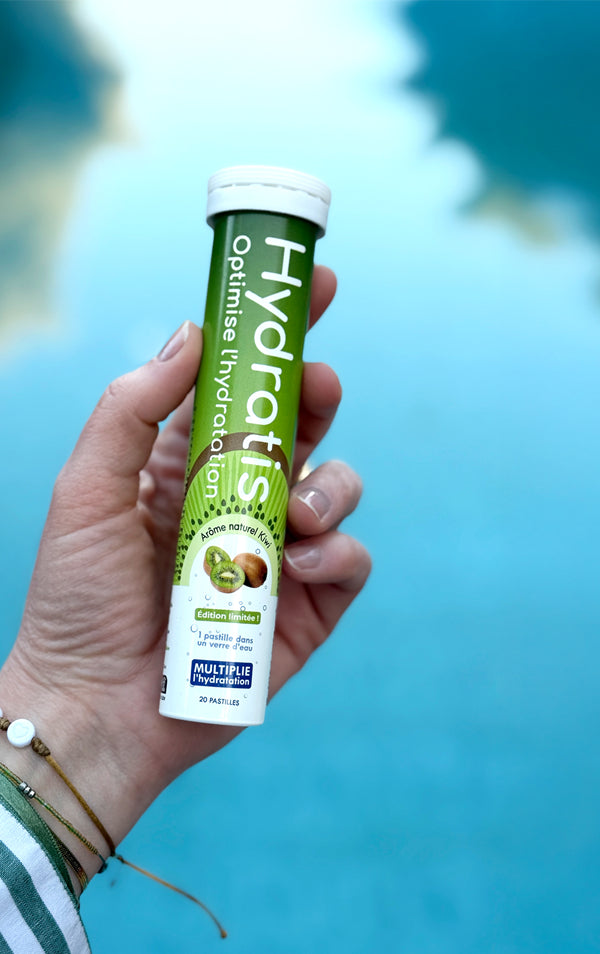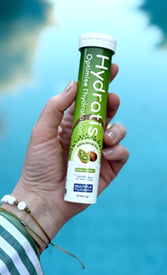Winter brings with it cool winds and freezing temperatures, but that doesn't mean your water intake should be neglected. On the contrary, understanding why drinking cold beverages during the winter months could be a game-changer for your overall well-being .
As the days grow shorter and temperatures drop, it's natural to want to retreat to the warmth of our homes, often at the expense of our water intake. However, this season shouldn't be synonymous with dehydration ! Explore with us why maintaining adequate hydration in winter can be key to facing this season with energy and vitality!
Why drink water in winter?

The first thought that might come to mind is, "Why should I drink water when it's already so cold?" However, the cold can be deceptive. Dry, cold air can cause subtle but significant dehydration. Let's explore why maintaining proper hydration is essential, even in cold weather.
The illusion of cold
The temptation to reduce water intake in winter is understandable, but the cold can play tricks on our perception. Dry, cold air has the ability to mask insidious dehydration. When we breathe this chilly air, our body has to warm it to match our core temperature. This process, while necessary, results in a silent evaporation of moisture from our body, which is often overlooked.
The effects of dry, cold air
The dry, cold air that characterizes winter creates an environment conducive to dehydration. Unlike summer, when the heat naturally encourages hydration through perspiration, the cold can mislead us, making us believe our water needs have decreased. In reality, dry air and indoor heating systems contribute to drying out our skin and respiratory system, thus increasing our vulnerability to dehydration, which is accompanied by headaches and fatigue .
Is it good to drink something very cold?
Temporary comfort
Drinking very cold water in winter can offer momentary comfort. The sensation of coolness can provide a welcome contrast to the freezing outdoor temperatures, creating a refreshing break from the monotony of the cold season. However, it is essential to consider whether this immediate comfort provides lasting benefits to our well-being.
Impacts on thermoregulation
When it's already cold, drinking very cold water can affect our ability to maintain a stable body temperature. In response to the cold, our body increases its internal heat production, a process called thermogenesis. While this can create a feeling of internal warmth, it's important to consider whether this is beneficial or could lead to excessive energy expenditure.
A risk of dehydration in winter
During the winter months, the risk of dehydration can persist despite the cold temperatures. The dry air associated with this season, combined with outdoor activities, can contribute to a loss of body moisture. Drinking ice water can help maintain adequate hydration, although hot drinks are often preferred to warm the body. Finding the right balance between the refreshing sensation and winter hydration needs is essential.
Individual sensitivity and precautions
It is crucial to consider individual sensitivity. People with sensitive throats or prone to sore throats may experience a worsening of symptoms with frequent consumption of very cold drinks in winter . Furthermore, individuals with specific medical conditions should consult a healthcare professional to assess any potential negative impacts.
When it's cold, is it good to drink something cold?
Drinking cold water in winter may seem counterintuitive, but it can offer several surprising benefits for our well-being, provided it is adapted to individual needs and preferences.

An immediate refreshment
The most obvious benefit of cold drinks in winter is the immediate refreshment they provide. In contrast to the cold outside temperatures, cold (but not ice-cold) water can create an invigorating sensation, awakening the senses and offering a moment of respite from the ambient chill.
Refreshing hydration
In winter, the risk of dehydration can persist despite the cool temperatures. Drinking cold liquids can encourage regular hydration by offering a refreshing option. Cold water or simply chilled drinks can be more appealing, thus encouraging people to maintain adequate hydration levels.
Managing heat stress
Drinking cool water can also help manage heat stress , especially if you spend a lot of time outdoors in cold weather. The feeling of internal coolness can create a soothing transition after prolonged exposure to the cold outside, thus promoting faster recovery.
Finally, drinking cold beverages in winter can be a pleasant sensory experience. Those who enjoy cold drinks can appreciate the contrast between body heat and the coolness of the water, creating a unique taste experience!
In summary, while drinking cold beverages in winter may seem unusual, this practice offers benefits such as immediate refreshment , metabolism stimulation , and refreshing hydration . However, it is crucial to pay attention to individual body responses and adjust this practice according to personal preferences and specific needs.
On the other hand, adapting to the seasons by adjusting our beverage choices is an approach worth considering. Warming alternatives not only offer a pleasant way to stay hydrated, but they can also be part of a holistic experience that takes into account our body's needs while creating a comforting atmosphere in winter. Therefore, the choice between cold and warm drinks can be guided by a careful understanding of our own preferences and bodily reactions, thus contributing to a balanced and satisfying winter experience.

To stay well hydrated throughout the winter season, remember to take Hydratis , a solution to drink hot or cold, as you prefer! 💦 We recommend drinking 2 tablets from a 500ml water bottle every day to keep your body in top shape for winter!






